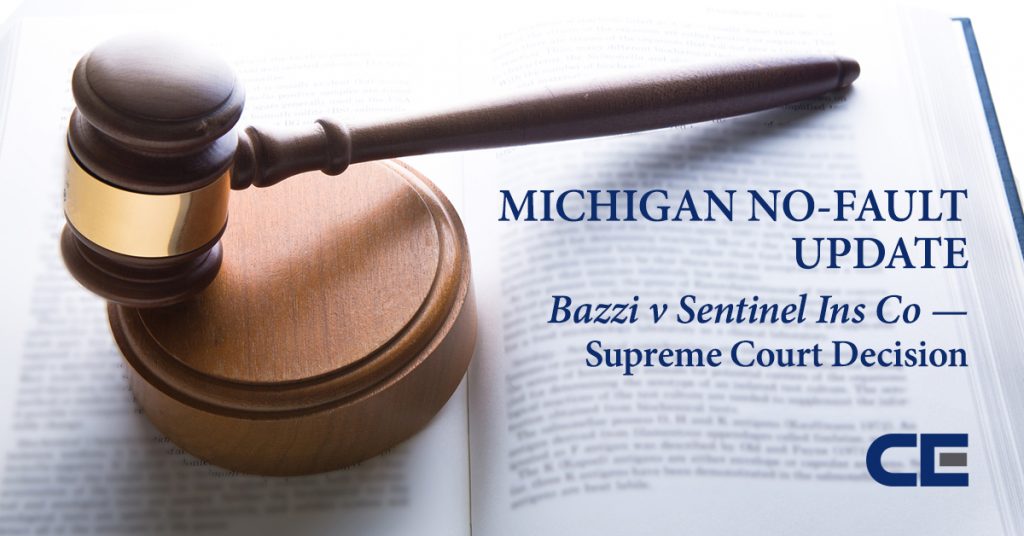 It’s a long-standing principle that no-fault insurers can assert common-law defenses, such as fraud in the application, in order to obtain rescission of a policy and avoid liability for payment of benefits on a claim. If a policy is rescinded, it’s as if the policy was never issued in the first place.
It’s a long-standing principle that no-fault insurers can assert common-law defenses, such as fraud in the application, in order to obtain rescission of a policy and avoid liability for payment of benefits on a claim. If a policy is rescinded, it’s as if the policy was never issued in the first place.
The innocent-third-party rule was a judicially created exception to this principle. Under the rule, insurers couldn’t use the defense of fraud in the application against a third party (that is, someone other than the policyholder) making a claim under a policy. The reasoning was that, because the third-party claimant didn’t commit the fraud, it was unfair for insurance companies to rescind the policy based on fraud.
In Bazzi v Sentinel Ins Co, the Michigan Supreme Court confirmed that its prior decision in Titan Ins Co v Hyten implicitly abolished the innocent-third-party rule. Accordingly, insurance companies are entitled to assert common-law defenses, including rescission based on fraud in the procurement of a policy, even against innocent third parties.
But the Court also held that, when considering a motion for rescission as to an innocent third party, trial courts must “balance the equities” between the insurance company and the third party. Insurers are not automatically allowed to rescind a policy with respect to innocent third parties, even if the policyholder committed fraud. Rather, rescission should only be granted where the trial court determines that the result would be just.
What This Means for Insurance Companies
The Supreme Court has effectively replaced the old innocent-third-party rule with a new “soft” innocent-third-party rule. The defense of rescission based on fraud in the procurement of a policy is still valid as to innocent third parties. But we anticipate that it will be significantly less successful now that the Supreme Court has explicitly instructed trial court judges to consider the fairness of allowing an insurance company to rescind a policy as to an innocent plaintiff.
This higher burden for rescission will likely be compounded by the fact that plaintiff firms will quickly be able to determine (and can likely already guess) which judges will not grant rescission as to innocent third parties under any circumstances. Firms will then be able to file suits involving third-party claimants in jurisdictions where they know that they will be relatively safe from rescission.
Please feel free to contact our office at (248) 355-4141 with questions.
